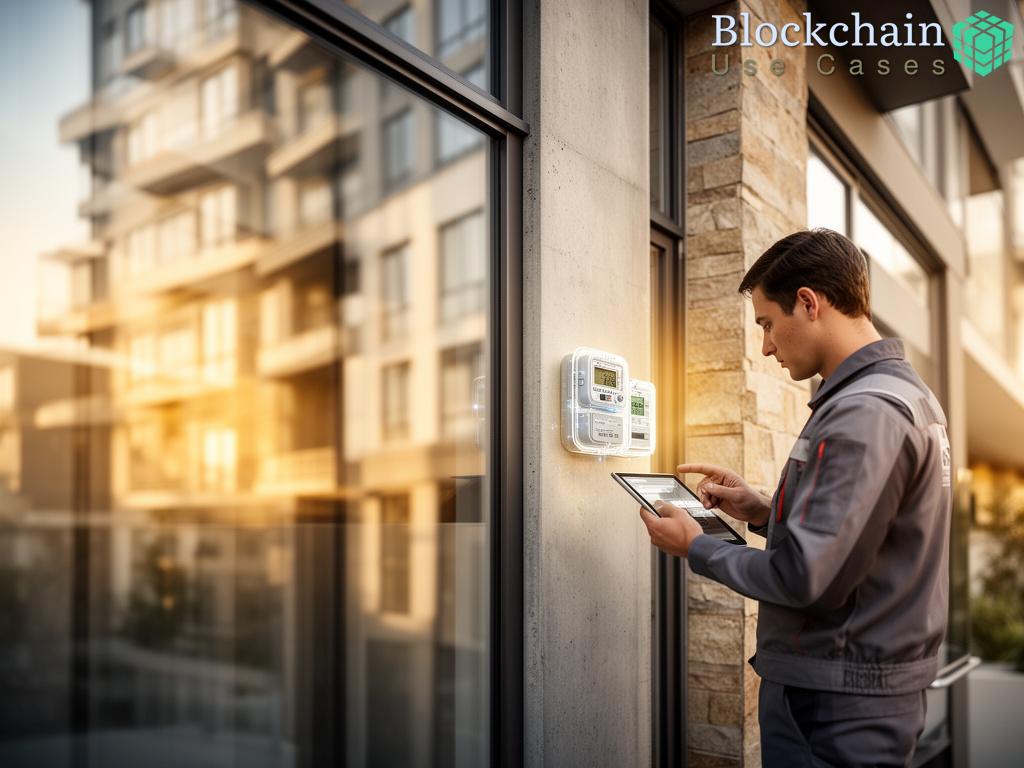Blockchain Technology in Real Estate Certification

The emergence of blockchain technology has heralded a new era in various industries, and real estate is no exception. Traditional methods of certification and licensing for real estate professionals often involve cumbersome paperwork, delays, and a lack of transparency. However, blockchain offers a decentralized, immutable ledger that can streamline these processes, ensuring authenticity and security in credential verification.
One of the most compelling advantages of using blockchain technology for real estate certification is the enhanced transparency and security it provides. All transactions and updates to a professional’s credentials can be recorded on the blockchain, making it nearly impossible to forge or alter records without detection. This not only builds trust among clients and peers but also protects against fraud—a significant concern in real estate.
Benefits of Blockchain in Real Estate Certification:
- Decentralization: Eliminates the need for a central authority.
- Immutability: Ensures that once a record is entered, it cannot be altered.
- Accessibility: Allows all stakeholders to verify credentials in real-time.
- Efficiency: Reduces the time and cost associated with traditional verification methods.
As the real estate industry increasingly recognizes the potential of blockchain technology, the path toward widespread adoption will require overcoming certain challenges. Issues such as regulatory hurdles, the need for industry-wide standards, and the integration of existing systems with blockchain solutions must be addressed. Nevertheless, the momentum is building, and stakeholders are optimistic about a future where blockchain becomes the standard for certification and licensing in real estate.
Decentralized Identity Verification for Licensing
The landscape of identity verification is undergoing a profound transformation with the introduction of decentralized platforms. In the realm of real estate, where trust and verification are paramount, decentralized identity verification emerges as a game-changer. By leveraging the power of blockchain, these platforms aim to offer a secure and efficient way to validate the identities of real estate professionals, thereby enhancing the credibility of licensing processes.
Decentralization and Ownership of Identity plays a crucial role in the effectiveness of identity verification in real estate licensing. Traditionally, individuals rely on central authorities to validate their identity, which can lead to potential vulnerabilities and inefficiencies. Decentralized identity systems empower individuals to have control over their personal data, allowing them to selectively share their credentials with relevant parties. This ensures that only verified information is accessible, significantly reducing the risk of fraud.
Furthermore, the integration of smart contracts within decentralized platforms facilitates automated verification processes. When a real estate professional submits their credentials, a smart contract can instantly cross-reference this information against the immutable records on the blockchain. This not only speeds up the verification process but also enhances accuracy, contributing to a more robust licensing framework.
Enhanced User Experience is another significant benefit of decentralized identity verification. By eliminating tedious paperwork and lengthy waiting periods associated with traditional verification methods, real estate professionals can obtain their licenses more swiftly. This streamlined experience not only satisfies the professionals but also enhances the overall efficiency of the real estate market. The ability for stakeholders to access verified information in real-time fosters a more transparent environment, ultimately benefiting clients seeking trustworthy professionals.
However, as promising as decentralized identity verification is, it is not without its challenges. The adoption of these platforms requires a concerted effort to establish industry-wide standards and regulatory frameworks. Collaboration among technology providers, regulatory bodies, and real estate organizations will be essential in addressing these hurdles. The potential for decentralized identity verification to reshape the licensing landscape is immense, and with the right strategies in place, the real estate industry can look forward to a more secure and efficient future.
Smart Contracts for Streamlined Certification Processes
In the rapidly evolving landscape of real estate, the integration of smart contracts within decentralized platforms is proving to be a pivotal innovation. These self-executing contracts, embedded with the terms of the agreement directly in code, are revolutionizing the way certification and licensing processes are conducted in the real estate sector. By automating and securing transactions, smart contracts minimize human error and expedite the verification of credentials, thus enhancing the overall efficiency of the certification process.
Automation and Accuracy are paramount when it comes to the certification of real estate professionals. Smart contracts automatically validate credentials against the secure blockchain database as soon as they are submitted. For instance, when a real estate agent applies for certification, the smart contract accesses the decentralized ledger to verify educational qualifications, work experience, and licensing requirements without any manual intervention. This instantaneous validation not only reduces the time taken for approvals but also ensures that the data is accurate and up-to-date, thereby building trust in the certification process.
Furthermore, the transparency offered by smart contracts cannot be overstated. All actions taken by these contracts are recorded on the blockchain, providing an immutable trail of actions that can be audited at any time. This transparency is crucial in maintaining the integrity of the certification process, allowing stakeholders to verify the legitimacy of a real estate professional’s credentials without relying on third-party verification services. Such a system not only enhances accountability but also significantly reduces the risk of fraudulent activities.
Despite these advantages, the transition to a smart contract-based certification system is not without its challenges. The necessity for standardization of smart contracts across various jurisdictions poses a significant hurdle. Real estate markets operate under diverse regulatory frameworks, and achieving consensus on uniform standards for smart contracts will require collaboration among industry stakeholders, including technology providers, regulatory bodies, and real estate associations. However, once these standards are established, the benefits of swift, reliable, and secure certification processes will undoubtedly reshape the profession.
Impact of Decentralization on Regulatory Compliance
The advent of decentralized platforms has not only transformed the operational dynamics of real estate certification and licensing but also has significant implications for regulatory compliance. As the real estate sector grapples with the complexities of regulatory frameworks, the integration of decentralized technologies offers a promising pathway to streamline compliance while enhancing transparency and accountability.
Empowering Compliance through Transparency is one of the most notable effects of decentralization on regulatory adherence. By utilizing blockchain technology, all transactions related to certification and licensing are recorded on an immutable ledger. This means that every action taken—whether it’s the submission of credentials or updates to licensing status—can be tracked in real-time. Such transparency reduces the likelihood of non-compliance as regulatory bodies can easily access and audit these records. The traditional model, often marred by opaque processes, stands in stark contrast to this new paradigm, wherein compliance can be verified without cumbersome paperwork or lengthy investigations.
Adaptive Regulatory Frameworks are another critical aspect of how decentralization impacts compliance. Decentralized platforms can facilitate real-time updates to regulatory requirements, ensuring that all stakeholders are consistently aligned with the latest standards. For instance, if a regulatory body modifies the criteria for licensing, decentralized platforms can instantly reflect these changes, allowing real estate professionals to adapt accordingly. This agility not only enhances compliance but also fosters a culture of proactive adherence among professionals, who can leverage these platforms to remain informed and compliant.
Challenges in Integration and Standardization also arise as a result of decentralization. While the benefits are compelling, the transition to a decentralized compliance model requires harmonization across various jurisdictions. Different regions may have varying regulatory expectations, and achieving consensus on a unified compliance framework is essential. Stakeholders from regulatory agencies, real estate organizations, and technology providers must collaborate to develop standards that accommodate these differences while leveraging the strengths of decentralized platforms.
Ultimately, the impact of decentralization on regulatory compliance in real estate certification and licensing can be profound. By enhancing transparency, enabling adaptive frameworks, and promoting collaboration across the industry, decentralized platforms hold the potential to create a more compliant, efficient, and trustworthy real estate market. As the industry continues to evolve, the emphasis on decentralized solutions will likely play a pivotal role in shaping the future of regulatory compliance.
Future Trends in Real Estate Professional Certifications
As the real estate landscape continues to evolve, the concept of adaptive learning is making significant inroads into the realm of professional certifications. This innovative approach tailors education and training to the unique needs and progress of each individual. In a decentralized certification environment, this means that platforms can leverage data analytics and user feedback to customize learning paths for real estate professionals. Such a shift not only enhances the relevance of the training but also ensures that agents are equipped with the most pertinent skills for an ever-changing market. Moreover, by incorporating real-time updates on regulatory changes and industry trends, adaptive learning can keep professionals ahead of the curve, thus facilitating a more competent workforce.
Artificial Intelligence (AI) and Machine Learning (ML) are poised to redefine the certification process in the real estate sector. These technologies can analyze vast amounts of data to predict which skills will be most valuable in the future, allowing certification programs to proactively adjust their curricula. By integrating AI-driven assessments, real estate professionals can receive immediate feedback on their competencies and areas for improvement. This not only streamlines the certification process but also enhances the learning experience by providing tailored recommendations for further development. As AI and ML technologies mature, their application within decentralized platforms will likely create a more dynamic and responsive certification environment, fostering greater engagement among professionals and improving overall industry standards.
The future of real estate professional certifications is also leaning towards global standardization and interoperability among decentralized platforms. As more countries and regions recognize the benefits of blockchain-based certification systems, the push for a unified framework is becoming increasingly important. Such standardization will not only facilitate cross-border recognition of qualifications but will also enhance the legitimacy of certifications globally. By establishing common protocols and criteria, real estate professionals can ensure that their credentials hold weight irrespective of geographical boundaries. This trend towards interoperability is essential for fostering trust and collaboration in an increasingly interconnected world, where real estate transactions often transcend national borders.





